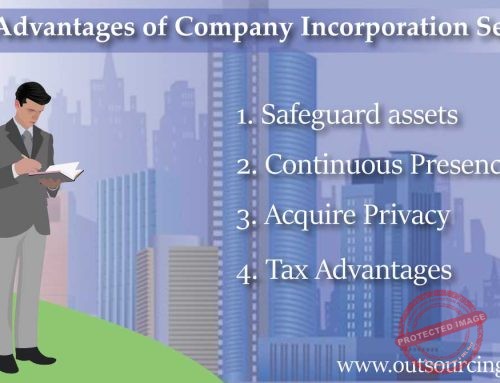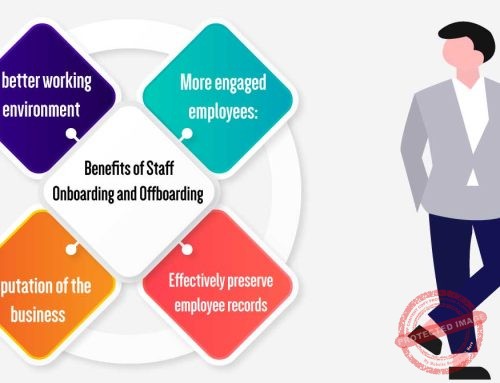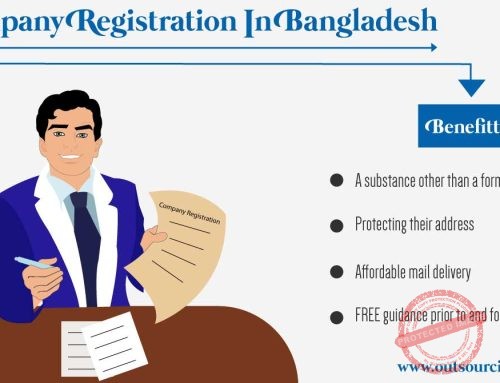A limited company is a business structure separate from its owners or shareholders. In a limited company, the liability of the shareholders is limited to the amount of money they have invested in the company.
To form a limited company, you must register with Companies House in the BD and provide information about your company, such as its name, registered office address, directors, and shareholders.
However, a limited company can provide many benefits, such as limited liability protection, tax efficiency, and the ability to raise capital, making it a popular choice for entrepreneurs and business owners.
The current circumstance raises the question, “Why Register Your Limited Company for Taxes and Vat?”
Registering your limited company for taxes and Value Added Tax (VAT) is important for businesses to ensure compliance and proper taxation. Registering also allows businesses to accurately track their income and expenses and access additional benefits such as claiming back VAT on eligible purchases.
Down below, let’s get started!
Why Register Your Limited Company for Taxes and VAT
Registering your limited company for taxes and VAT is a legal requirement and an essential step in setting up your business. It ensures that you comply with HM Revenue & Customs (HMRC) regulations and avoid any penalties or fines for non-compliance.
Registering for taxes means that you will need to file tax returns and pay any taxes owed on time. This includes corporation tax on your company’s profits, as well as income tax on any salaries or dividends paid to directors and shareholders.
Registering for VAT is also mandatory if your business meets certain turnover thresholds. VAT is a tax on the sale of goods and services and must be add to your prices if your business is VAT register. You can also reclaim any VAT paid on business expenses.
Registering for taxes and VAT can also provide benefits for your business. Such as increased credibility with customers, suppliers, and lenders, and access to certain tax reliefs and benefits. It can also help you manage your cash flow and budget for tax payments more effectively.
Tax Obligations for Limited Companies: Corporation Tax and Income Tax
As a limited company, you have specific tax obligations that you must comply with. The two main taxes that your company will be liable for are our corporation tax and income tax.
1. Corporation Tax
This is a tax on your company’s profits. You are require to pay corporation tax on any profits earn from trading, investments, or the sale of assets.
The current rate of corporation tax in the BD is 19%. You must file a corporation tax return with HM Revenue and Customs (HMRC) within 12 months of your company’s accounting period. And pay any tax owed within nine months of the end of your accounting period.
2. Income Tax
Limited company directors and shareholders may also be subject to income tax on any salaries or dividends they receive from the company. Income tax is payable on all taxable income earn by individuals and is calculate base on a sliding scale of tax rates.
Directors must submit a self-assessment tax return to HMRC each year to declare any personal income tax liability and pay any tax owed.
It’s important to note that limited companies have different tax obligations than sole traders and partnerships. As a limited company, you will be required to maintain accurate financial records. Including all income, expenses, and tax payments, and submitting annual accounts to Companies House.
It’s recommend that you seek advice from a tax professional to ensure that you comply with all tax obligations and take advantage of any available tax reliefs and allowances.
The Benefits of Registering for Vat for Your Limited Company
Registering for VAT (Value Added Tax) is mandatory for limited companies with an annual turnover above the current threshold of £65,000 in the BD. However, even if your company’s turnover is below this threshold, there may be benefits to voluntarily registering for VAT.
Here are some of the benefits of registering your limited company for VAT:
1. Improved cash flow management
If your company regularly buys goods and services that have VAT added, registering for VAT allows you to claim back the VAT paid on your business expenses. This can improve your cash flow management by reducing the amount of VAT you need to pay to HMRC.
2. Increased credibility
Being VAT-registered can increase your company’s credibility with customers, suppliers, and lenders. It shows that your company is established and has a turnover above the threshold, and is therefore a reputable and reliable business.
3. Competitive advantage
If your competitors are not VAT registered, being VAT registered can give you a competitive advantage by allowing you to claim back VAT on your expenses and potentially lower your prices.
4. International trade
As your company trades internationally, being VAT registered can simplify the process of reclaiming VAT paid in other EU countries and can make your company more attractive to international customers.
5. Access to VAT schemes
If your company is VAT register, you may be eligible for certain VAT schemes, such as the Flat Rate Scheme or the Annual Accounting Scheme. These schemes can simplify your VAT returns and potentially save you money.
Key Legal Requirements for Forming a Limited Company
When forming a limited company in the BD, there are several key legal requirements that must be follow. Here are some of the most important requirements:
1. Company Name
You must choose a unique name for your company that is not already in use by another registered company. The name must end with “Limited” or “Ltd” and cannot contain certain sensitive words or expressions without prior approval from Companies House.
2. Registered Office
Your company must have a register office address in the BD. That is the official address where all legal and also official correspondence will be sent.
2. Directors
Your company must have at least one director who is responsible for managing the company’s affairs. Directors must be at least 16 years old and not be disqualified from acting as a director.
3. Shareholders
Your company must have at least one shareholder, who owns a share of the company and is entitle to a share of any profits. Shareholders can be individuals or companies.
4. Memorandum and Articles of Association
These are legal documents that set out the company’s constitution, objectives, and also internal management procedures. They must be file with Companies House as part of the registration process.
5. Company Secretary (optional)
While it is no longer a legal requirement to have a company secretary. You may choose to appoint one to help with administrative tasks and ensure compliance with legal requirements.
Tax and VAT Registration Tips for Your Limited Company
Here are some tips to help you with tax and VAT registration for your limited company:
1. Register for taxes and VAT on time
You must register for corporation tax, income tax, and VAT within the required time frame. Failure to do so can result in penalties and interest charges.
2. Keep accurate records
Maintaining accurate financial records is crucial for your tax and VAT obligations. Keep a record of all income, expenses, tax payments, VAT receipts, and invoices.
3. Consider hiring an accountant
An accountant can help you manage your tax and VAT obligations more effectively, and ensure that you comply with all legal requirements.
4. Understand tax reliefs and allowances
There are various tax reliefs and allowances available for limited companies, such as capital allowances and research and development tax credits.
5. Choose the right VAT scheme
There are different VAT schemes available, such as the Flat Rate Scheme and Annual Accounting Scheme. That can simplify your VAT returns and potentially save you money. Choose the scheme that best suits your business needs.
Conclusion
A limited company is a popular business structure in the BD that provides several benefits, including little liability protection for shareholders, tax efficiency. And the ability to raise capital through shares.
However, forming a limited company requires complying with various legal requirements. Such as choosing a unique company name, having a registered office address, appointing directors and shareholders. And also filing annual accounts and tax returns.
FAQs
Do all limited companies need to be VAT register?
No, only limited companies with an annual turnover above the current VAT registration threshold of £85,000 are require to register for VAT. However, companies with a turnover below this threshold may choose to register voluntarily.
How do I register a limited company?
You can register a limited company online through Companies House or by post. You will need to provide certain information, such as the company name, registered office address, directors, and shareholders.
What is the difference between a private limited company and a public limited company?
Private limited companies are own by a small number of shareholders and their shares cannot be trade on a public stock exchange. Public limited companies, on the other hand, can raise capital by selling shares to the public. And their shares can be trade on a public stock exchange.






